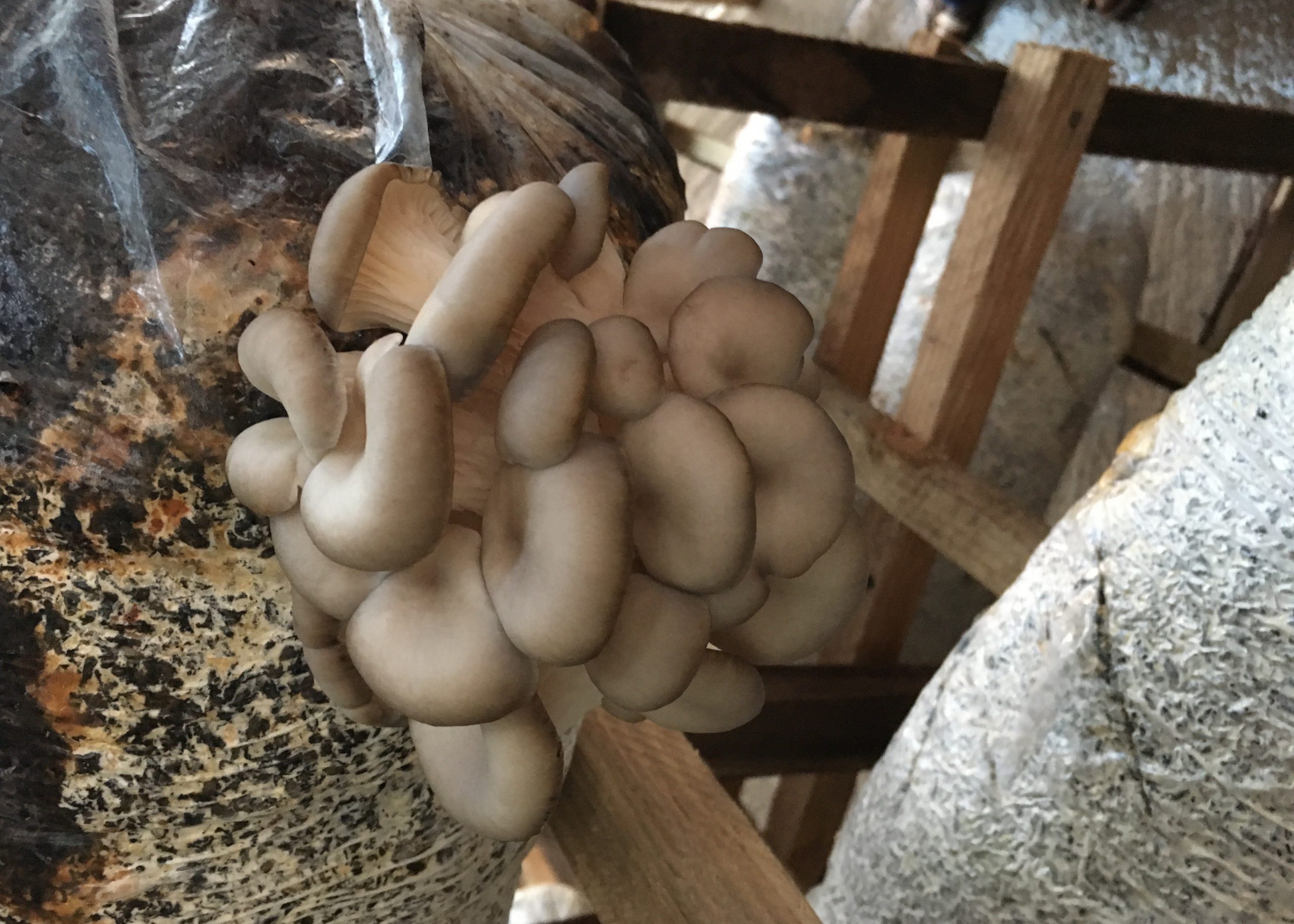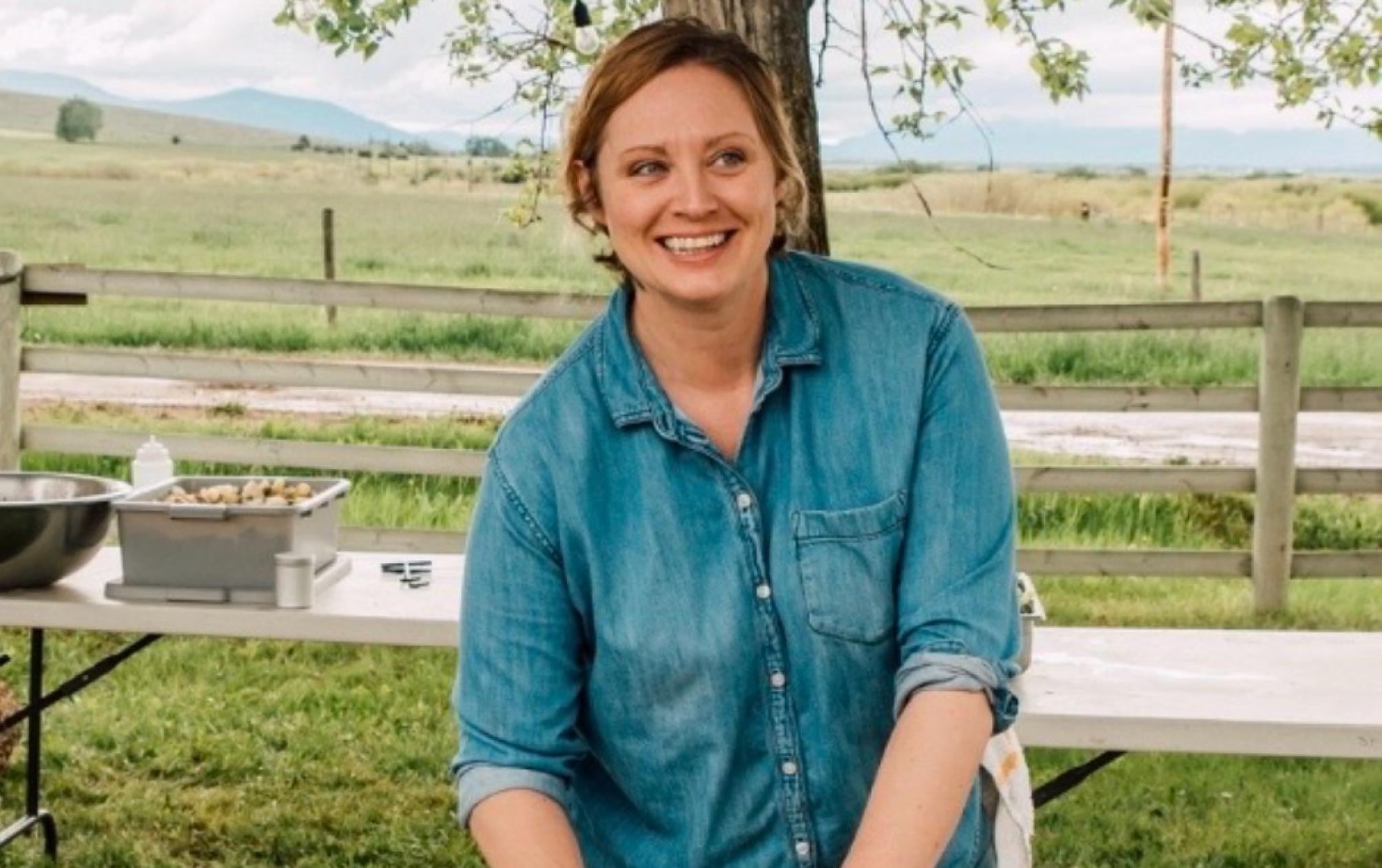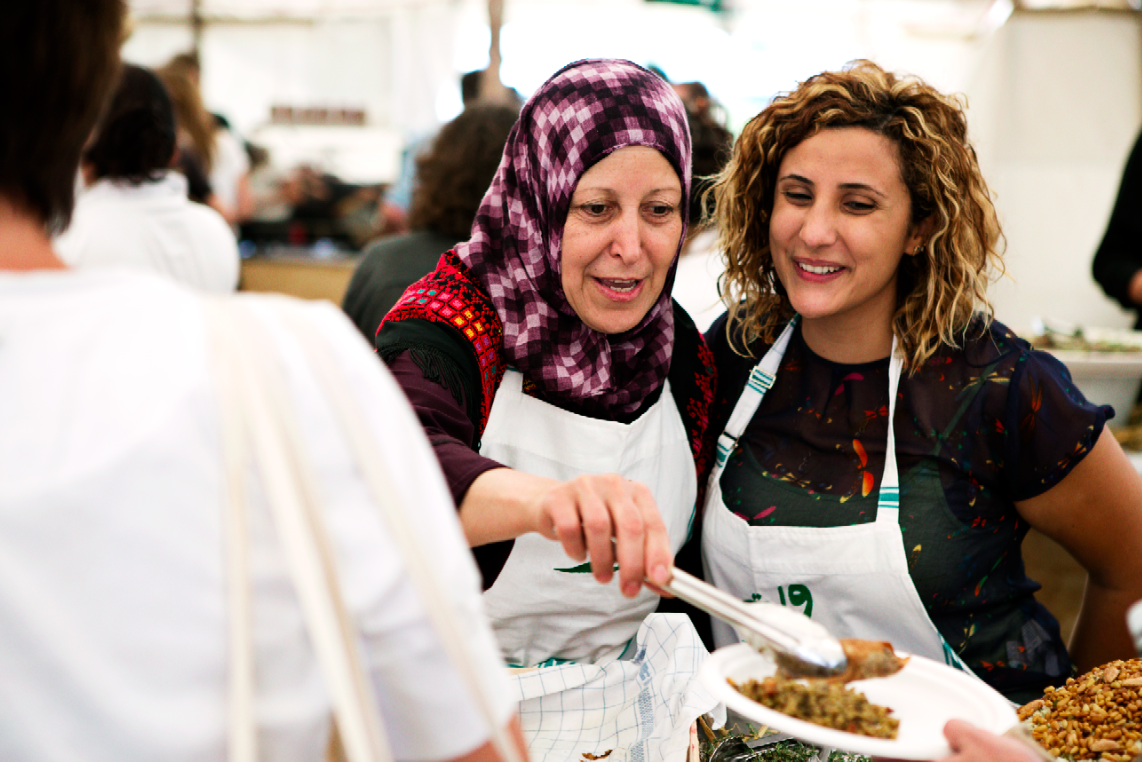Bridgette
Professional cooking is as often about humility and diligence as it is about inspiration or creativity. We asked Wylie Dufresne, whose kitchen at wd~50 has been one of the best places to learn about the art of cooking since it opened in 2003, to contribute something about how to act in a kitchen, about learning, about the relationship between mentor and student. He sent us the story of Sam the Stage.
WYLIE DUFRESNE: One day I am in the locker room changing and this brand new stage looks over at me and asks, “So what do you do around here?”
I said “I’m the chef” and I walked out. That was last time he and I ever spoke.
During my stages, I certainly knew who the alpha predator was. I knew whose name was on the door. I had a pretty good idea what he looked like, and I had burned it into my head to stay out of harm’s way. “Oui” and “chef” were the only two words I planned on saying if we spoke.
We’ve been taking stages at wd~50 for a long time, and in the earliest phases, they’d come for anywhere from a day to two months. As we examined our process, we found that a one-day stage isn’t good for anybody: on that first day, you’re arguably nervous, you’re reticent, and you’re not really that useful. It’s pretty much a one-way street. The cook in charge of the stage spends the better part of the day showing him where things are or fixing mistakes he’s made—usually honest mistakes most often, though occasionally the person is a boob whom we didn’t screen well enough.
So we had a vote in the kitchen about the minimum amount of time we’d want out of someone, so they could learn and we could potentially benefit from their presence. A stage should be able to pay it back and contribute, rather than actually slow the whole process down. The staff voted for five days. By the end of day two, and certainly by the third day, there should be a return. We still hold fast to that rule.
So, years ago now, we got a new stage. I didn’t hire her; that was Mike Sheerin, the sous chef and the person in charge of the kitchen whenever I wasn’t within arm’s reach of it. Sheerin is a funny guy off the clock who loves to fuck around, but in the kitchen, he is all business, a serious man, a great cook.
So I come back from a day off and he tells me, “I took a stage yesterday.” I thought that sounded great. Then he tells me it’s a girl who walked in off the street during the afternoon with not a lick of experience—none, no culinary school, not even a bad restaurant somewhere—and he invited her to work here.
I was dumbstruck. I told him I didn’t want to know about it—that she was his project. But I always welcome stages, and I introduced myself to her. She was working at Scholastic, she had been a French minor at NYU. I have no idea why she wanted to work at wd~50.
Her name was Sam. I know that now. The whole first month she was at the restaurant, I thought her name was Bridgette. I kept calling her Bridgette. Finally someone told me. I felt bad, though it was an honest error on my part, but she never corrected me. She just answered to Bridgette the whole time—and to her credit! That’s what I would have done if I’d been in her shoes.
I wasn’t being cruel and just throwing some sort of name on her, I don’t remember, I just wrongly thought her name was Bridgette, so I kept calling her that. It has certainly since become a running joke—now a stage may affectionately and intentionally get called Bridgette behind their back.
SAM HENDERSON: I didn’t know parsley from cilantro when I got to wd~50. Literally. Mike Sheerin asked me to chiffonade some parsley one day, so I ran into the walk-in in the middle of service—to be fair, I was a little nervous—grabbed some cilantro, and cut it really quickly. I brought it upstairs and asked him how it looked. He said, “Well, it looks wonderful. But it’s the wrong herb.” That’s just one of the countless times I was mortified. I was just really excited to be at wd~50.
I landed there on a lark. I was working in children’s publishing at the time. It was fun, but it wasn’t right. I considered going to cooking school but I mean, that’s a lot of money. So I thought I’d walk around to a couple of restaurants and see if they’d let me help.
I had eaten at wd~50 once and got to shake Wylie’s hand and talk to him for a little bit—which of course he doesn’t remember, since he meets people all the time. I talked to him again the following summer, at an event for Time Out or something, and he just seemed like a nice guy.
So one day on my lunch break, I walked over and asked if I could come to help. I didn’t even know that there was a term for working for free. I asked if they’d let me come in and apprentice or just hang out and peel potatoes and watch.
I spoke to Mike. Chef must have been in a really good mood because that’s not something he normally does. I remember him saying, “We don’t peel that many potatoes here.” And I told him, “I can do other stuff! Pick things and…” And he was like, “All right. Come back next week, but bring a pair of pants and bring a chef’s knife.” The knife I brought was atrocious. It was like a really shitty chef’s knife you buy from Crate & Barrel. I got teased for that for quite a while.
I think it counted that I came by, walked in, and asked to see somebody. I was very honest: I came right out and said that I didn’t know a damn thing, but I’d try hard. Both Wylie and I have said many times that Mike should never have let me come in. But I got lucky. So I started coming in on Saturdays and Wednesdays for three months before I quit my job.
I worked closely with Mike, who was very patient with me, though I don’t think that, historically, he’s a very patient guy. I was the fish in a kitchen of veteran cooks — Fran Derby, Paul Carmichael, all of whom were badasses in their own right. I was just terrified, but I think Mike had a kindness and a soft spot because of that. I really, really wanted to be here, which counts for something.
WYLIE: I don’t want to say Sam was useless, because that’s cruel. But she was not very useful.
Sam was a career changer. She was very sweet, very nice, quiet, and she didn’t know how to do anything. But Mike kept his eye on her and, before you knew it, she started to rise through the ranks.
Because it’s okay to bring very little to the party as long as you bring the right attitude, one that says I’ll do anything anytime, anywhere, anyhow. Chefs remember that. I know guys who didn’t do me a solid 10 years ago and when we see each other now, they look at my shoes when we’re talking, even if bygones are well by and gone at this point.
Beyond a willingness to work, there’s the presence needed to know how to learn: ask to see it once, and only need to see it once to get it right. When I go to an event and we’re cooking with other chefs I respect and admire, I’ll bring my best guys with me and as soon as we’re ready, I’ll tell them, “Go ask Grant or Alex if they need help with anything.” But I also tell them to ask the chef to demonstrate the desired result once, whatever the task is, even if it’s as seemingly self-explanatory as a chiffonade. Because my chiffonade is different from René’s, and you wanna do it the way that person wants it done.
Sam left her job and started staging full time, climbing from green to great. And I don’t remember her ever needing to leave early. Another thing with staging: Be available and don’t have restrictions. The stage should be the engagement that happens at all costs. Don’t arrange a stage somewhere if you’re going to need to leave early to catch a train at night. That’s what they’ll remember about you, not the good work you did.
At a certain point, Sam was running out of money and very respectfully told Mike and me that she needed to get a paying gig by a certain date. We told her we knew lots of people and that if she put her job search in our hands, we’d find her a place—but by that point we had no intention of letting her go. So we strung her along, week after week, like we were working on it or forgetting about it, and on her last day I think we even gave her a goodbye card and had a special family meal and said “Look, you know, thanks, it has been great having you and blah blah blah…” And then we told her, “You’re going to be working here now.” She started crying, she was so excited.
SAM: I did three years at wd~50, climbing the ladder, working my way around the kitchen, and then went out to see a bit more of the world. I worked at Mugaritz, which is a wonderful place, but it’s very different: they have like five chefs and thirty stages. It’s a really different approach to preparation. The army of thirty all works together on one task at a time and it’ll be done in six minutes. It’s different from giving two people one thing to do and having it take thirty or forty minutes. That was a strange adjustment: being part of a group of thirty, which meant that we were strangers to the restaurant, more or less.
I’d been at Mugaritz for a month before I got to talk to anybody on a friendly level. It was a different beast, but it was a great experience: all of the plates are so beautiful, the food is so forward thinking, and you step outside and you’re in the middle of the mountains.
Then I went to Chicago, where I spent a year at The Publican. I learned about beer, broke down whole animals, and tried my hand at high volume: on a busy night that place would do like 500 covers! I was decent at it, but it wasn’t for me. I stayed a little under a year at a place called Sepia, but I really missed New York.
And at that point, I wanted to come back to wd~50. because I didn’t really want to work for anybody else. I know that’s kind of a stubborn, irrational thing to say because my experience was limited, but it was true.
WYLIE: I kept my eye on Sam after she came back, when she was one of two sous chefs. She’d always been good at coming up with dishes. She excelled at the intellectual aspect of what we do. But it was hard for her to bust balls—to let people know what they weren’t doing right. She could always hold her own and even step up and cover for other people, but she had to develop the managerial skill set.
In many ways the sous chef is the hardest job in the kitchen, cause you are the eyes of the chef whenever he or she isn’t around. And when he sees things he’s not happy about, he goes right to you: you get talked to, they’re now your problems to sort out. But you’re also meant to be looking out for the cooks; you’re still going out with them for drinks.
I remember during my days at Jean-Georges, after work we were all buddies who drank into the night, and in the morning it was my job to tell somebody what a dumb-dumb he was. You get tugged in both directions as a sous chef.
Eventually I saw that she had it down; she was a friend and colleague to the cooks who could encourage them and help them grow, as well as someone they never wanted to cross. Nine or ten months after Sam came back, Jon Bignelli, who was chef de cuisine, was going to be moving on to open up Alder, our second restaurant. That left a spot open at the top. I thought about other people. I’d been in touch with Chris Young, who did Modernist Cuisine with Nathan Myhrvold, to see whether he knew anyone who could maybe slide in. It needed to be someone who knew the vocabulary of the cooking we do—and there really are very few cooks who do.
Eventually, though, it was clear to me that Sam was the only candidate, and I was happy when she accepted the chef de cuisine job. At wd~50, it’s not simply about the cooking; there’s also a lot of thinking. You have to do a lot of homework to work here. She’s taken to it and become a great student in the style of cooking and the way we work here.
I’m proud of the fact that someone who walked in off the street, who by all rights should have cut her finger off in the first week, has risen to the top. I remember that once, back in the Bridgette days, I went downstairs and saw Sam just bathed in red. I gave her a look like what are you doing? and she said, “I’m juicing beets.” “Who’s winning?” I asked her.
Now I could leave for a month and I wouldn’t worry about the place: it’s in the right hands. And she falls in the path of big footsteps: Mike Sheerin and Jon Bignelli are both beasts, both terrific cooks. And then there’s Sam. I think it’s impressive that she literally arrived with nothing and can now walk around this entire restaurant and show everybody what to do.
SAM: I came back because very few places give their cooks as much opportunity to learn and work on and contribute to the menu as wd~50. That’s something that will be important here, and to me, until we close our doors.
I think it’s just important to stay curious because, I mean, what’s the point? I don’t want to sound hokey, but I think a life without imagination and learning makes your world very small and sad. And those things are very important here. We don’t have a specific place we start: it could be an idea or a flavor or a protein or a memory or a thread of conversation. You can get away with pretty much anything here, as long as it’s weird and tastes good. It’s a kitchen where ideas and creativity are valued, and not just abstractly. You have to be curious to succeed here.
That’s what I’ve seen with stages who I’ve been in charge of, too. We get culinary students who think they know everything, which is annoying. But when we get stages that are kind of obnoxiously snobby— “You know, I’ve done this here, here, and here”—it’s really easy to put them in the prep kitchen and ignore them.
Cooks who come from other restaurants are the best, because they’re interested in seeing something different. I know from experience: if you really want to be here, then act like you want to be here. This applies to all kitchens.
And if you don’t, don’t come back. I have a stage who flooded the prep kitchen when he tried to dump a ton of lamb fat down the sink, and he’s called in sick for the last three days. I don’t think he’s coming back, and I think we’ll all be better for it.
You can purchase a copy of Dispatches via the MAD Store.




